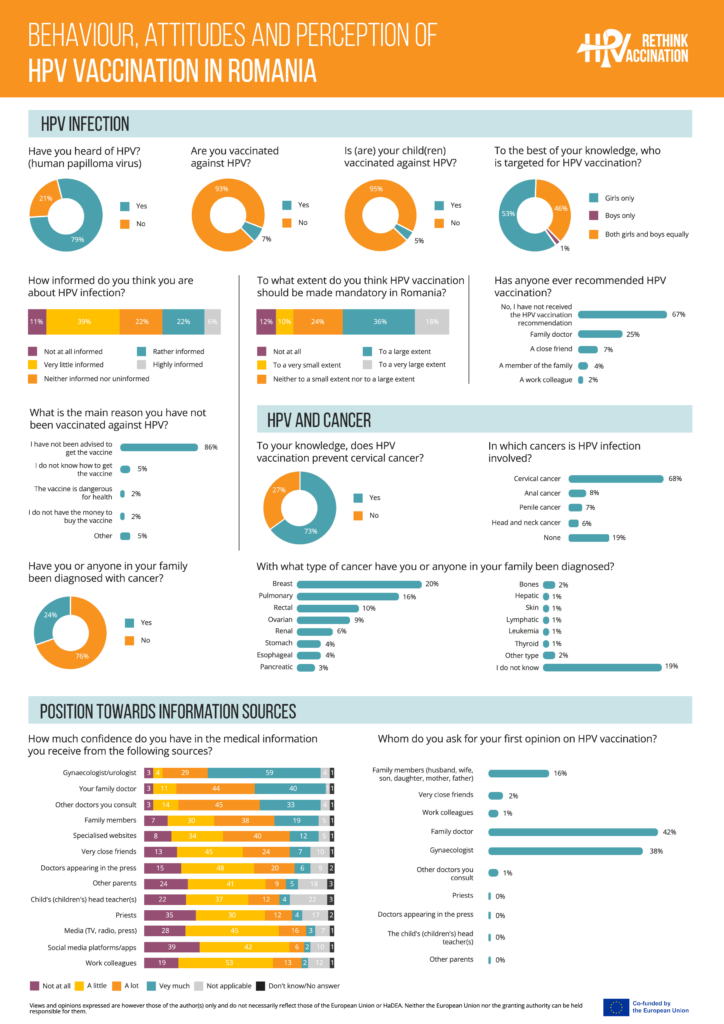BUCHAREST, January 22, 2024. On the occasion of the European Cervical Cancer Prevention Week (January 22-28), the project co-financed by the European Commission, #ReThinkHPVaccination, presents: The analysis of perceptions and attitudes towards HPV vaccination in Romania.
The study "Behaviour, Attitudes, and Perception Regarding HPV Vaccination in Romania" was conducted in November 2023 as part of the ReThinkHPVaccination project, co-funded by the European Commission and carried out by the Renașterea Foundation in collaboration with the Centre for Innovation in Medicine and the Eurocomunicare Association (as partners) and the European School of Oncology (as an associated partner). The main goal of the project, to support member states and countries in the process of expanding the European Union in rethinking and restarting HPV vaccination campaigns, is crucial for achieving the goals of the European plan to fight cancer and the Cancer Mission. HPV vaccination and cancer prevention are essential components of these strategies, and the ReThinkHPVaccination project significantly contributes to achieving these goals.
The sociological study, whose results we make public today, is quantitative, conducted through the sociological survey method based on an online questionnaire applied through the CAWI (Computer Assisted Web Interviewing) data collection method, and coordinated by the Eurocomunicare Association. The sample consisted of 1110 people, nationally representative for the adult population of Romania over 18 years of age (inclusive). It is representative across socio-demographic categories (gender, age, occupation). The sample's margin of error is ±3% with a confidence level of 95%.
The main conclusions of the study are as follows:
These conclusions underline the need for additional efforts to inform and raise public awareness about HPV vaccination and will serve as a basis for future awareness and promotion initiatives for HPV vaccination. The ReThinkHPVaccination project continues to work towards increasing acceptance of vaccination and reducing the risks associated with HPV infection.
"The statistics related to the incidence and mortality caused by cervical cancer in Romania are concerning. In this context, the ReThinkHPVaccination project represents a necessary response to the elimination of cervical cancer, in line with the objectives of the European Beating Cancer Plan. Through collaboration with partners InoMed and EuroCo, the project, which obtained co-financing from the European Commission, commits to changing mindsets and reducing inequalities regarding HPV vaccination in EU member states. It is fundamental in this endeavor that the project aims to evaluate society's perception and targeted interventions on the behavioral determinants of health. This comprehensive approach will contribute to identifying solutions to address the specific issues that have led to these low HPV vaccination rates and, consequently, the increased incidence of cervical cancer,"
Mihaela Geoană, President of the Renașterea Foundation
